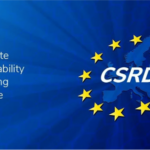On 23 April, the European Parliament’s Employment Committee voted on its report on corporate social responsibility (CSR). It asks for obligatory requirements for social and environmental reporting to be introduced.
Background:
In July 2001, the European Commission issued a Green Paper on a European framework for corporate social responsibility (CSR). The aim was to launch a wide debate among the stakeholders.
Issues:
The Employment Committee followed the rapporteur’s, Richard Howitt (UK-PES), recommendations to include a requirement for companies to publish verified social and environmental reports. This decision went against the Industry Committee’s recommendations that called for reporting to remain voluntary.
Since the Employment Committee is the lead committee on this report, it sought to integrate some of the Industry Committee’s proposals. 155 amendments were tabled. Some of the important recommendations included in the report are:
* There is a necessity to use both voluntary and legal measures in CSR. The starting point must however remain a voluntary approach;
* Social and environmental reporting should be included in the framework of the fourth company law directive;
* The Commission should actively support the Global Reporting Initiative (GRI);
* An EU multistakeholder CSR platform should be set up;
* CSR concerns should be better integrated into other policy areas, such as trade, public procurement and development cooperation.
Industry has in general been calling for a voluntary approach to CSR. In its response to the Green Paper CSR Europe has demanded a flexible approach with no mandatory regulations on e.g. reporting, because of the risk that it would inhibit the companies’ creativity. Instead, the Commission should focus on spreading best-practice and on promoting CSR, through for example a European Year of CSR. Some companies, such as Levi’s, have stated that certain guidelines for a common reporting system could be beneficial, since it would create a level playing field.
NGOs such as Solidar, have called for a standardised reporting system with certified verification. They have also emphasised that the EU should first focus on compliance with existing social and labour laws, before encouraging additional voluntary actions.
Next steps:
The report is scheduled for adoption in the Parliament’s plenary session in May.
In July 2002 the Commission is expected to issue a communication on CSR, which should outline action programmes to be launched in the near future.



